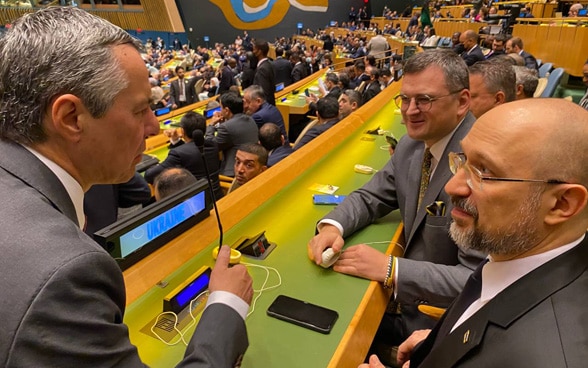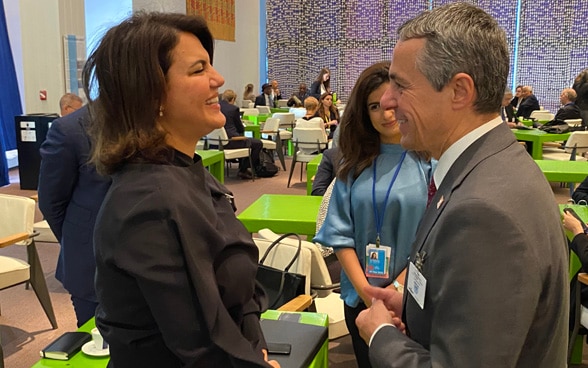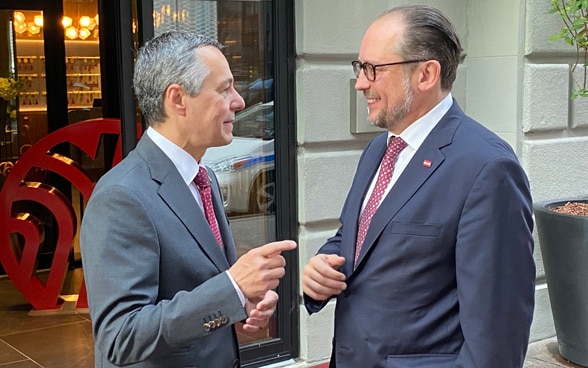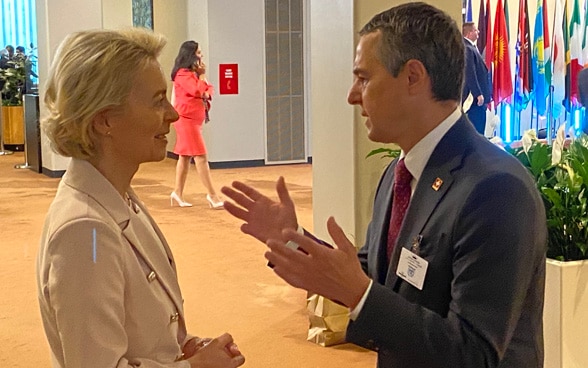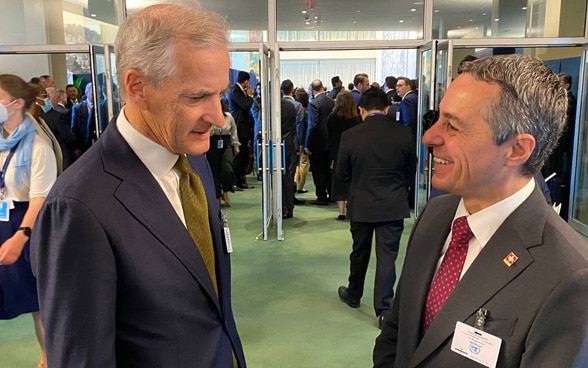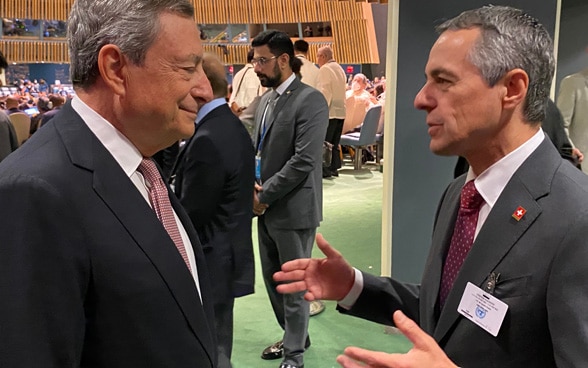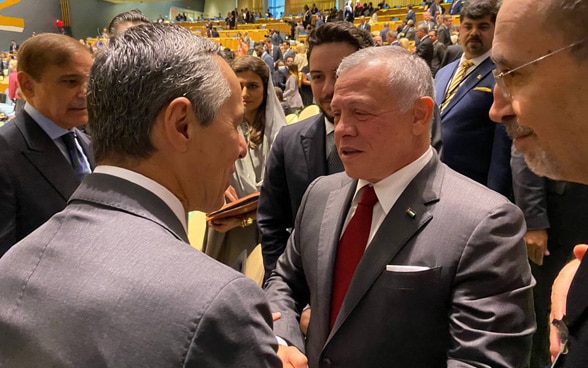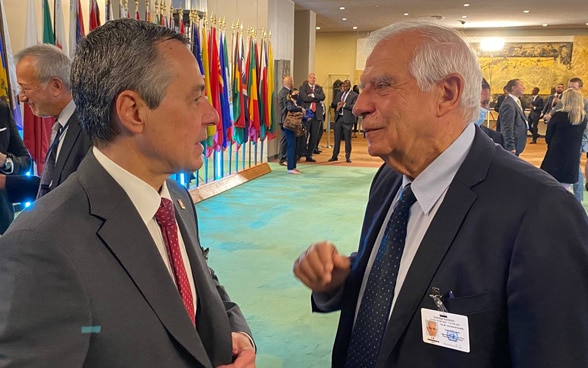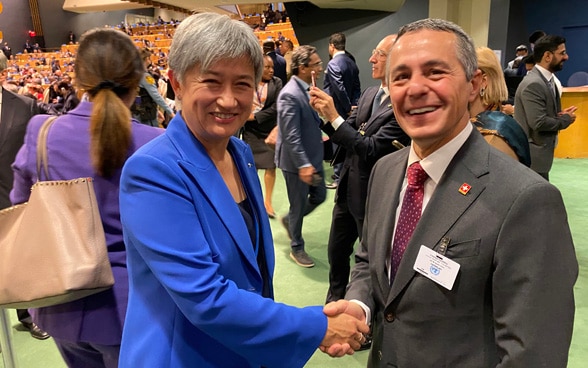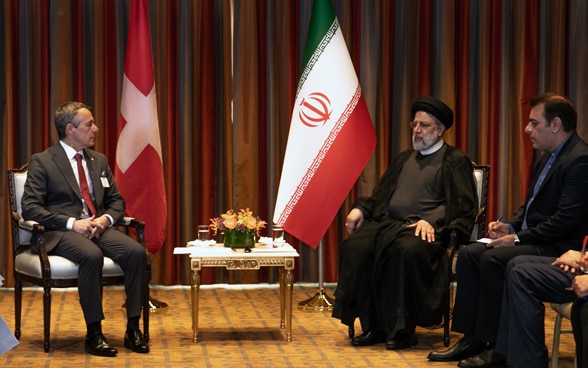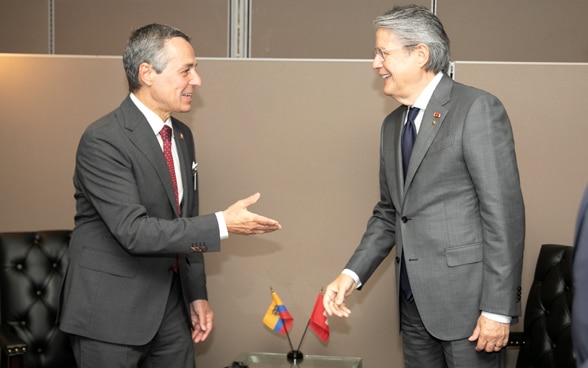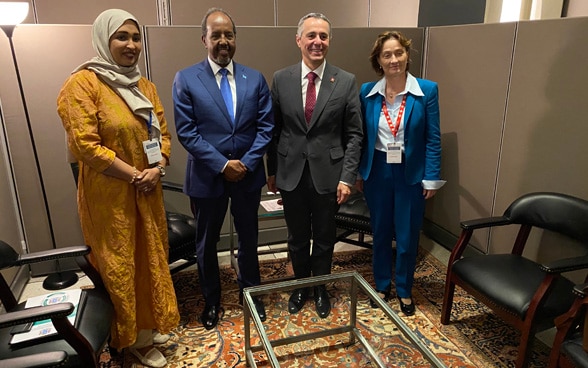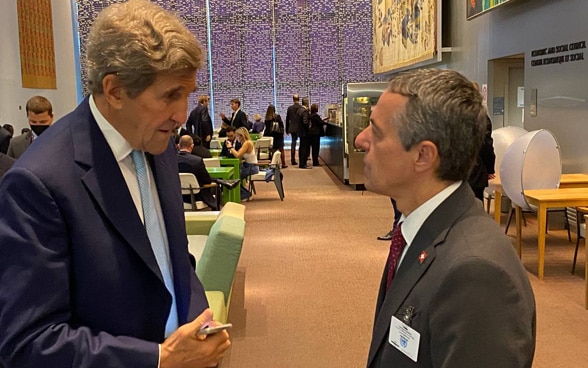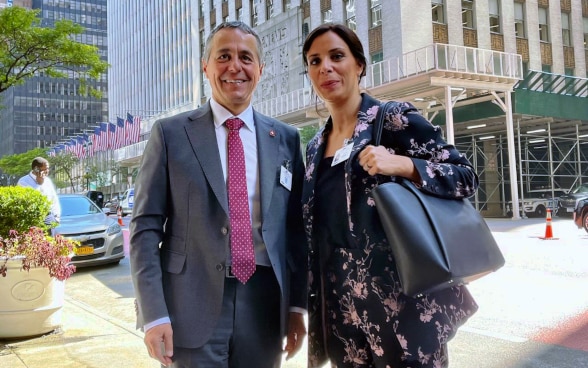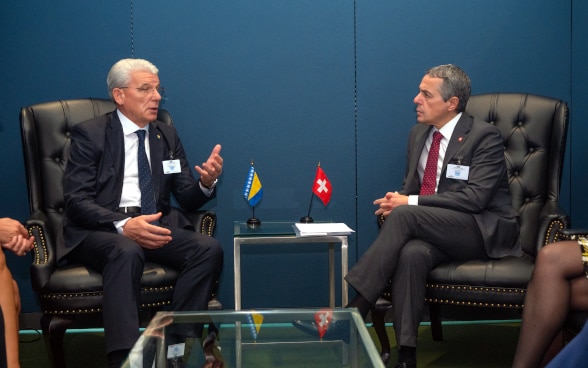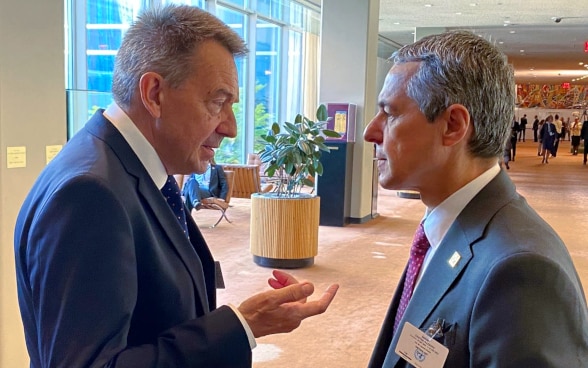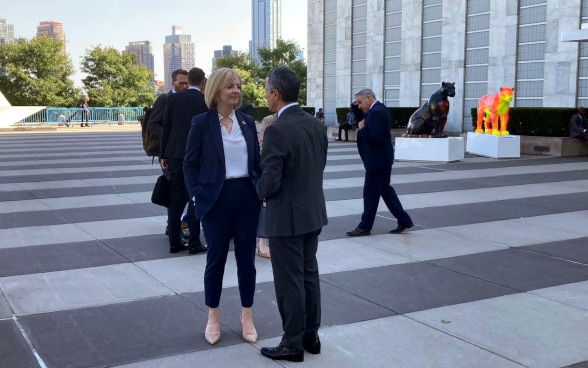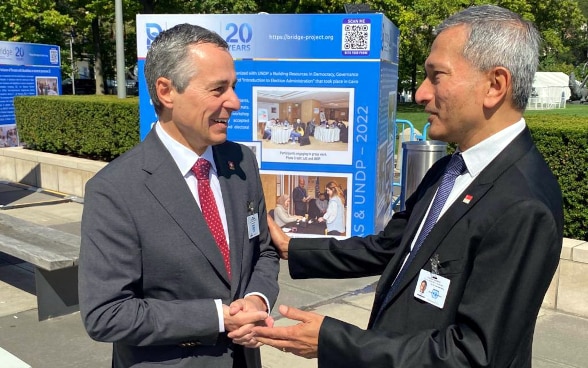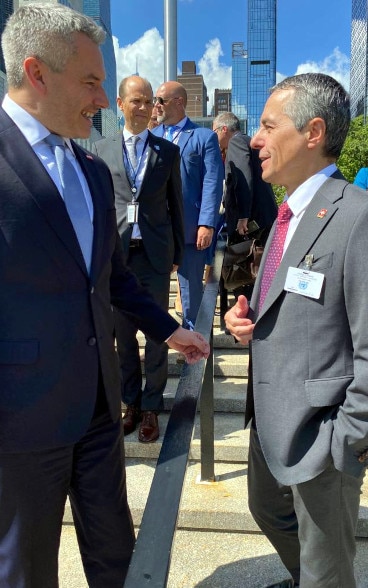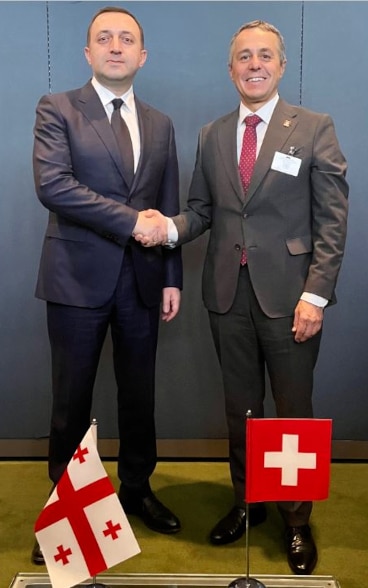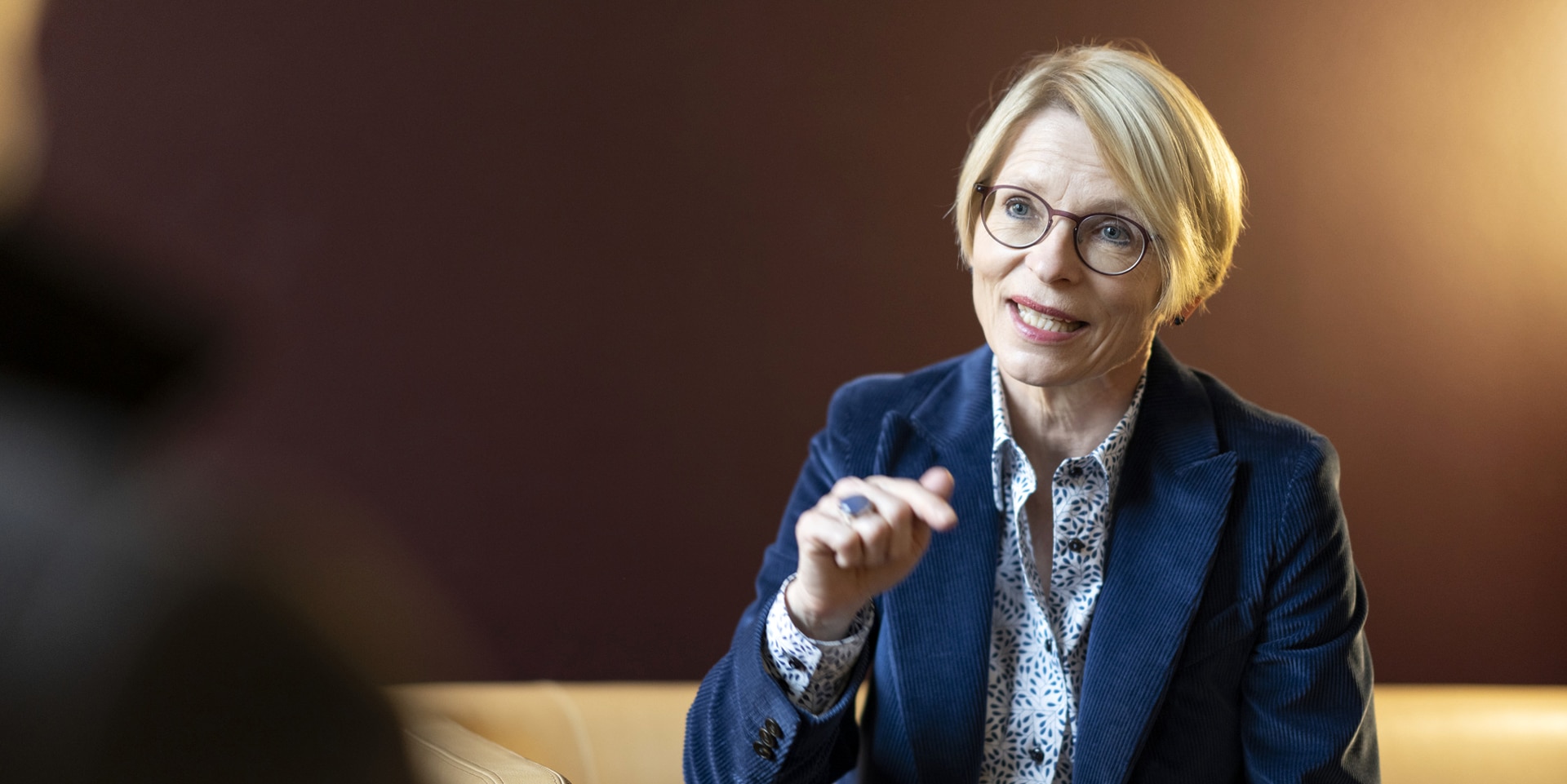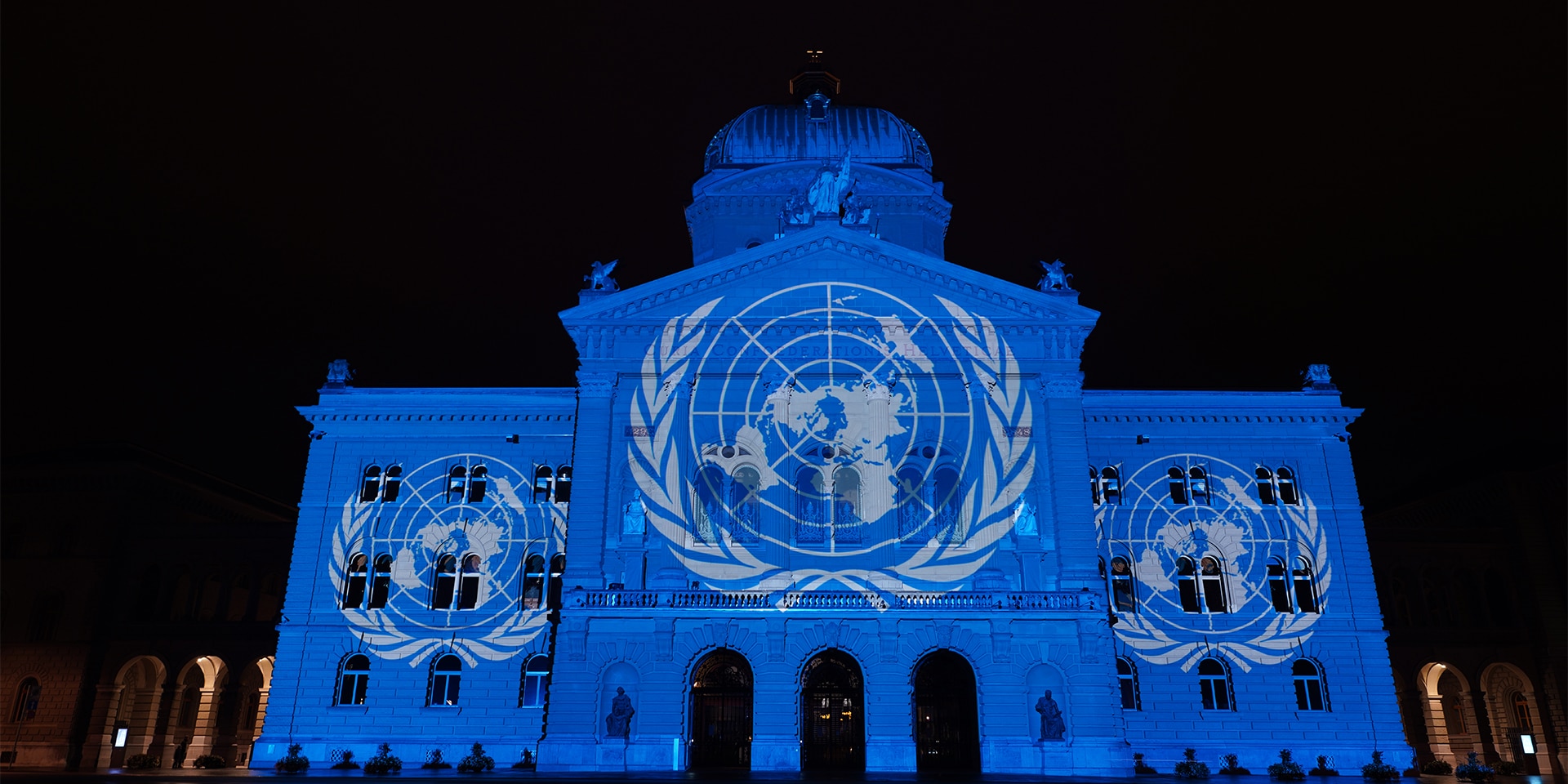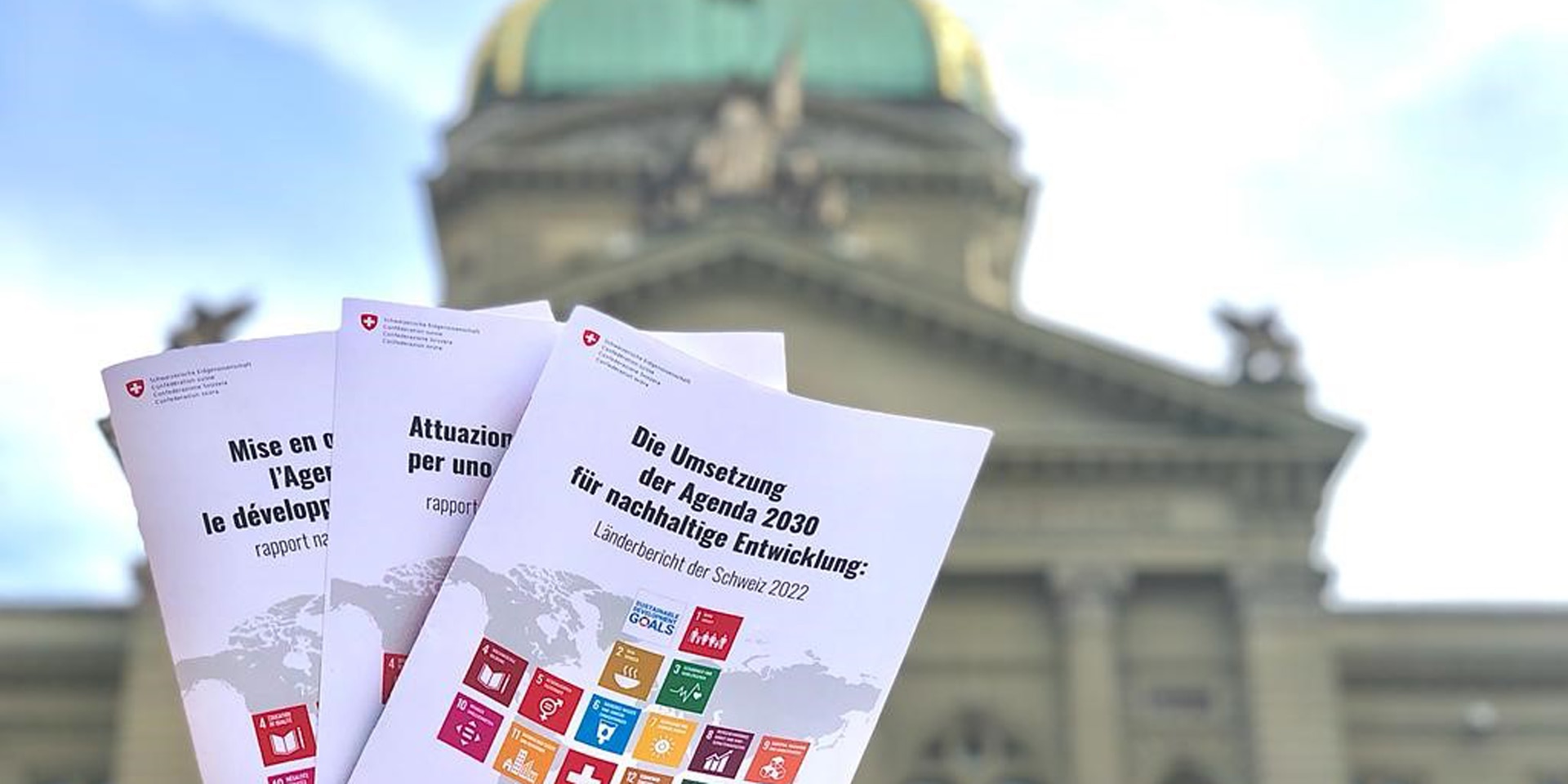77th session of the UN General Assembly Ignazio Cassis represents Switzerland in New York
President of the Swiss Confederation Ignazio Cassis will attend the high-level opening week of the 77th UN General Assembly from 20 to 21 September. With wars, a pandemic, climate change and energy shortages, this year's session is taking place in a difficult context. With his participation, Mr Cassis will highlight that the UN is needed more than ever and must continue to operate effectively in this time of multiple crises. All news in the news ticker.
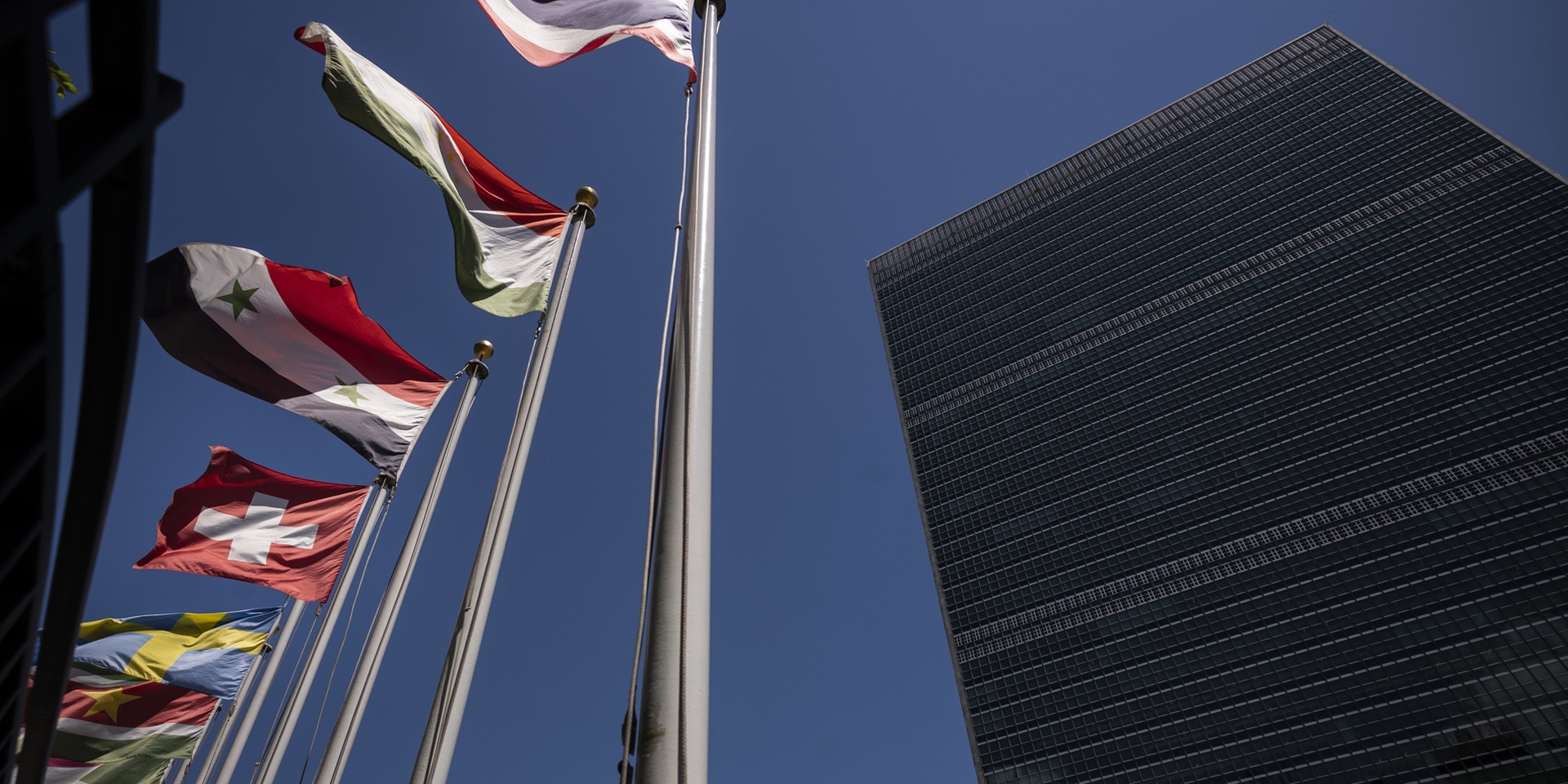
The high-level week of the 77th session of the UN General Assembly will take place from 19 to 23 September 2022 in New York. © Keystone
21.09.2022 – Donors Conference: Global Fund to Fight AIDS, Tuberculosis and Malaria
Under the patronage of Joe Biden, the Seventh Replenishment conference of the Global Fund to Fight AIDS, Tuberculosis and Malaria took place on the margins of the high-level opening week of the UN General Assembly. The Global Fund is a long-standing international cooperation partner of Switzerland. Switzerland announced a contribution of CHF 64 million over the next three years.
Through this partnership, Switzerland helps low- and middle-income countries to improve public health locally. The Global Fund achieves this through the procurement of medication as well as diagnostic and protective equipment such as mosquito nets.
21.09.2022 – Meeting with Foreign Minister Sergei Lavrov
On the margins of the high-level opening week of the UN General Assembly, President Ignazio Cassis met Russia's Foreign Minister Sergei Lavrov.
21.09.2022 – 30 Years of the UN Declaration on Minority Rights
The Declaration on Minority Rights was adopted at the UN General Assembly thirty years ago. To mark this anniversary, President of the Swiss Confederation Ignazio Cassis took part in a debate with counterparts and colleagues. "I am deeply convinced that the participation of minorities in all areas of society and political life contributes to the stability and prosperity of a country. It is also a necessary condition for the peaceful resolution and prevention of conflicts," explained the head of the FDFA.
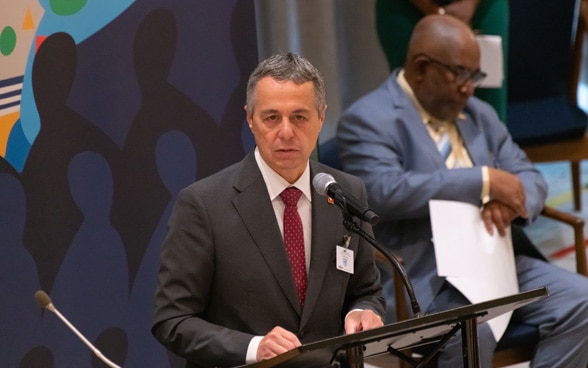
Because of its linguistic and cultural diversity, Switzerland has a wealth of experience in dealing with minorities. It uses this experience in its foreign policy on a daily basis. "As a country that is known for the peaceful coexistence of minorities, Switzerland will continue to protect their rights, support their participation in political processes, fight all forms of discrimination and champion diversity," emphasised Mr Cassis in his address.
21.09.2022 – Protection of civilian populations: Cassis hands over Swiss instrument of ratification
President of the Swiss Confederation Ignazio Cassis officially handed over the Swiss instrument of ratification for the amendment of the Rome Statute to the UN. This amendment makes the intentional starving of civilians during civil wars an internationally punishable offence. The International Criminal Court in The Hague is responsible for its legal incorporation. This is a diplomatic success for Switzerland.
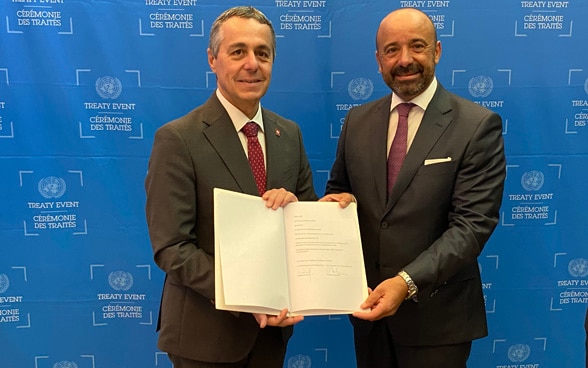
The amendment was proposed by Switzerland and, following numerous rounds of negotiations, adopted by all the states parties to the Rome Statute on 6 December 2019. The amendment's ratification was unanimously approved by the National Council and the Council of States in March 2022. This reflects the long-standing Swiss commitment to the protection of civilians. This will also be a priority when Switzerland takes its two-year seat on the UN Security Council in 2023.
20.09.2022 – President Cassis works with Nigerien President Bazoum against violent extremism
Preventing violent extremism is central in achieving the 2030 Agenda Sustainable Development Goals. Against this backdrop, Switzerland has worked together with Niger to organise a donors conference for the Global Community Engagement and Resilience Fund (GCERF) during the high-level opening week of the UN General Assembly. President Ignazio Cassis and the Nigerien President Mohamed Bazoum will open the conference. Speaking in New York, Mr Cassis said, "Violent extremism is one of the greatest challenges to peace and stability on our planet. It represents a multitude of challenges that also impact peace, security, sustainable development, the rule of law and human rights."
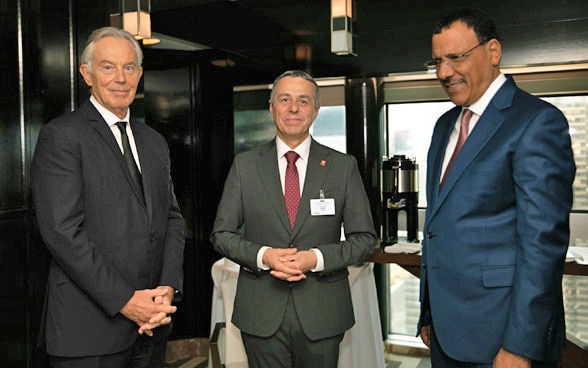
The Geneva-based fund supports social cohesion, the removal of obstacles to equal opportunities and strengthens personal responsibility in society. In doing so, it bolsters communities' capacities to resist violent extremism and achieve sustainable development. GCERF is currently active in 15 countries in the Horn of Africa, the MENA region, the Sahel, South- and Southeast Asia as well as in the Western Balkans. Switzerland has supported GCERF through annual contributions totalling USD 10 million since 2014. Mr Cassis announced that this support will continue: "Through dialogue with all parties, including armed groups, the numerous causes of violence can be addressed – be they political, social or economic in nature."
20.09. 2022 – President of the Swiss Confederation's opening speech at the UN General Assembly
President of the Swiss Confederation Ignazio Cassis emphasised the relevance of the United Nations in his address to the UN General Assembly: "The UN offers a unique framework for realising that which comes first in its charter, namely uniting our strengths to safeguard world peace and international security." The head of the FDFA condemned the Russian military aggression against Ukraine and described the added value that Switzerland can offer the international community to achieve compromise and consensus in a world facing a turning point.
"Values are the compass for our action," explained Mr Cassis. Recognising the importance of fundamental values such as the self-determination of sovereign states, solidarity with the international community, international humanitarian law and sustainable development is crucial to Switzerland. "We cannot allow the power of the strong to prevail over the rights of the weak," said Mr Cassis in New York. Switzerland is committed to strong and effective multilateralism, whereby it places special value on the 2030 Agenda that has more resistant, sustainable and inclusive societies as its goal. "So I call on you to focus once more on the fundamental values of the 2030 Agenda, and to join forces to tackle their implementation," urged Mr Cassis.
The UN Charter states that every state is independent, including Switzerland. Its linguistic and cultural diversity requires cooperation beyond 26 Cantonal borders. "We have learnt that only cooperation, mutual respect, and permanent dialogue help to deal with challenges," stressed Mr Cassis. He also stated, "The UN is a unique and universal platform for dialogue and cooperation for all of us. Let's use it."
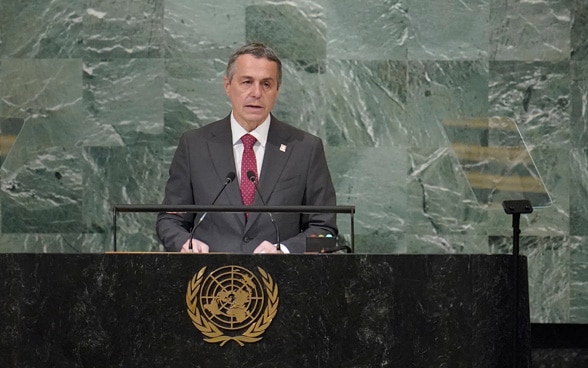
The commitment to peace and security is a traditional pillar of Swiss foreign policy, also as a neutral state. "Yet neutrality does not mean indifference or worse, a lack of solidarity. We are committed to safeguarding the principles of freedom, democracy and the rule of law, values that are enshrined in our Federal Constitution," said Mr Cassis. Switzerland will use its time on the UN Security Council to stand up for lasting peace, the protection of civilian populations, and the efficiency of the Security Council. It will also address the negative consequences of climate change on security. "We will be working hard to fulfil the trust you have placed in us and to be 'a plus for peace'," declared Mr Cassis. Yet Switzerland will not be advocating for a peaceful world only through the Security Council. It will sustain its wide-ranging work here, which it demonstrated recently in hosting the Ukraine Recovery Conference in summer 2022 in Lugano. "The Lugano Principles have established widely accepted criteria for Ukraine's recovery and reforms," explained Mr Cassis. Switzerland is internationally appreciated for its role as a mediator, as a host of conferences and as a protecting power. "International Geneva is the centre of multilateral diplomacy in matters of global governance, peace, human rights, disarmament, environment and health, but also in terms of anticipating technological challenges," underlined Mr Cassis.
Pandemics, catastrophes, wars, geopolitical polarisation and the resulting multiple crises are shaping world affairs. This also has an effect on multilateralism and means the focus must be placed on the essential issues of peaceful coexistence. "Purposefully strengthening multilateralism and returning to our core work is the single most important tool for jointly finding a way out of these turbulent times and into a better future," said Mr Cassis.
Switzerland's priorities for the 77th UN General Assembly
On 31 August 2022, the Federal Council outlined four priorities for the 77th UN General Assembly. During the 77th session of the General Assembly this coming year, Switzerland will focus on addressing the impact of the armed conflict in Ukraine as well as promoting international law, an effective UN system, and sustainable development. Despite the conflict in Ukraine, however, Switzerland will continue to pursue work on the full range of issues within the UN, while representing its interests; the most pressing problems facing humanity must not be neglected.

